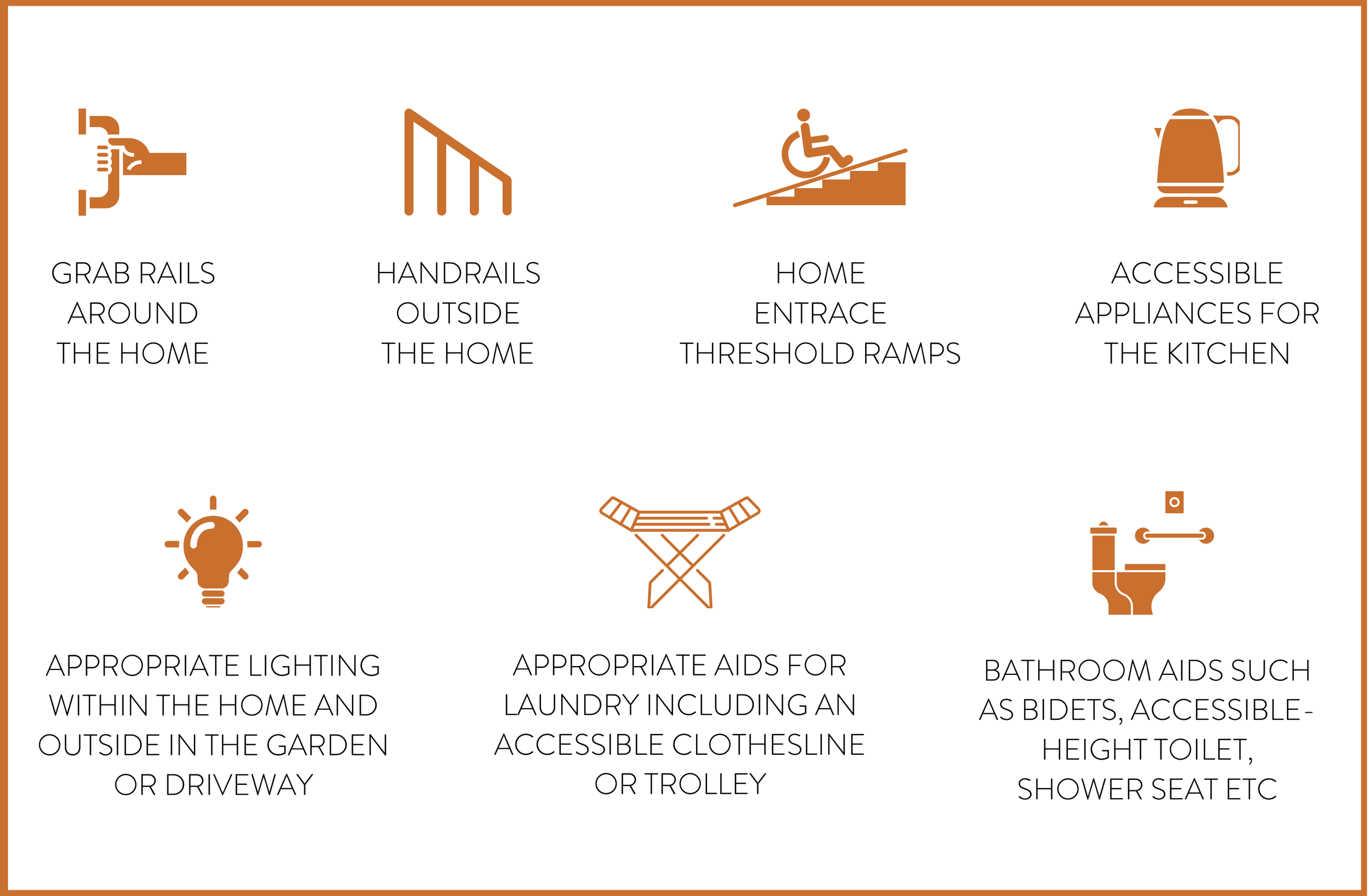Home & Minor Modifications and SIL
What are home & minor modifications
Home & minor modifications are custom-built aids or devices that help you maintain independent access to various areas of your home or community.
These modifications can be categorised as minor or major, such as installing grab rails versus making a bathroom wheelchair-accessible.
Unfortunately, Rebound Health exclusively handles minor modifications. However, the following is a list of areas we can assist with.
What is Supported Independent Living (SIL)?
Supported Independent Living (SIL) is an NDIS support service that involves supervision and assistance with daily everyday tasks to help people with disabilities live as independently as possible.
At Rebound Health, we love to assist our clients and participants to live the lives they wish, with the assistance and care that they require.
SIL Includes:
- Assistance with personal care routines such as showering, dressing and toileting.
- Assistance with household tasks such as shopping, preparing meals, washing clothes and cleaning.
- Active overnight and/ or sleepover support.
- Clinical support such as administering medication or the management of specialised conditions.
SIL Funding
Rebound Health is a proud NDIS approved provider and we are happy to announce that all our disability support services, can be accessed through NDIS funding. It is important that you have, or are applying for, the correct funding from the NDIS.
SIL funding can be provided both in non-SDA residences or SDA residences.
A SIL Assessment involves the OT providing a comprehensive assessment of the participants functional status and the support levels they require to live as independently and safely within their home with their everyday care needs been met.
At Rebound Health our Occupational Therapists are experienced in using a wide rage of assessments to ensure NDIS has very clear and comprehensive information available to them when making SIL decisions based on the reasonable and necessary criteria. Our report layout enables the reader to make clear connections between the participants level of ability, requirement for support and / or specialist housing and the NDIS requirements.
What to Expect
An Occupational Therapist will organise a home visit with the participant to understand what modifications are required and some options they could receive.
The OT will then take measurements around the home and clarify what the participant is hoping to achieve with the modifications for example increased safety and mobility in the bathroom or improved vision at night with lighting.
The OT will then research possible options and stay in contact with the participant every step of the way till the job is complete.
Why Us?
The OTs at Rebound Health are able to provide up-to-date knowledge on the latest devices and equipment modifications for the home and community.
We are determined to improve accessibility for you but ensure your home does not look like a hospital environment.
We confirm that the modifications meet your goals providing recommendations for cost-effective, flexible and practical solutions. We work collaboratively with builders to ensure the modifications meet standards and are functional.
Once the modifications have been determined we will discuss funding including submitting funding applications to relevant national insurance schemes.
Still Unsure If Rebound Is the Right Place For You?
Navigating the NDIS and finding the right support can feel overwhelming. That’s why we’re offering a Complimentary 15-Minute Discovery Call with our dedicated NDIS Coordinator at Rebound .
During this call, you’ll:
Discuss your needs and goals.
Gain clarity on how our Occupational Therapy services can support you or your loved one.
Receive expert guidance on how to maximise your NDIS funding for tailored therapy solutions.
Whether you’re exploring therapy options or looking to make the most of your NDIS plan, we’re here to guide you every step of the way.
Fill in the form below and we’ll schedule our complimentary session
-
You don’t need a referral to organise a home visit consultation.
A recommendation would be to identify the funding currently available to you so the OT is aware of the budget and funding scheme you will be using, for example, NDIS, My Aged Care, Department of Veterans Affairs or privately paid. -
Any relevant information to help your therapist get a good understanding of your situation and the modifications you may require. As this will be a home visit consultation, it is important to have the environment clear of clutter so the OT can take accurate measurements of the space which may need modification.
-
Your therapist will come to your home to chat with you about your condition and the impact it has on your everyday life. They will determine some ideas which may be suitable for the space which needs modifications then you can collaborate together on a plan. The OT will take some measurements if required and photos to refer back to when researching products. These photos are also important to use when mocking up the modification to show builders.
-
No, you can still receive modifications if you live in rented accommodation or the Department of Housing, however, you are required to receive written approval for modifications from the owner/real estate or governing body. Without approval, modifications can not be made to the home or external environment. An occupational therapist can assist you with a letter outlining why modifications need to be made which may assist with your request.





